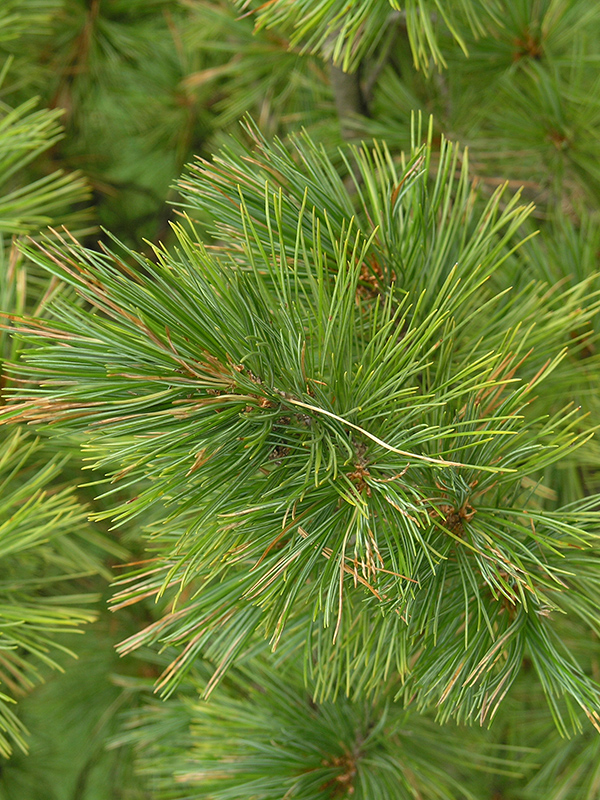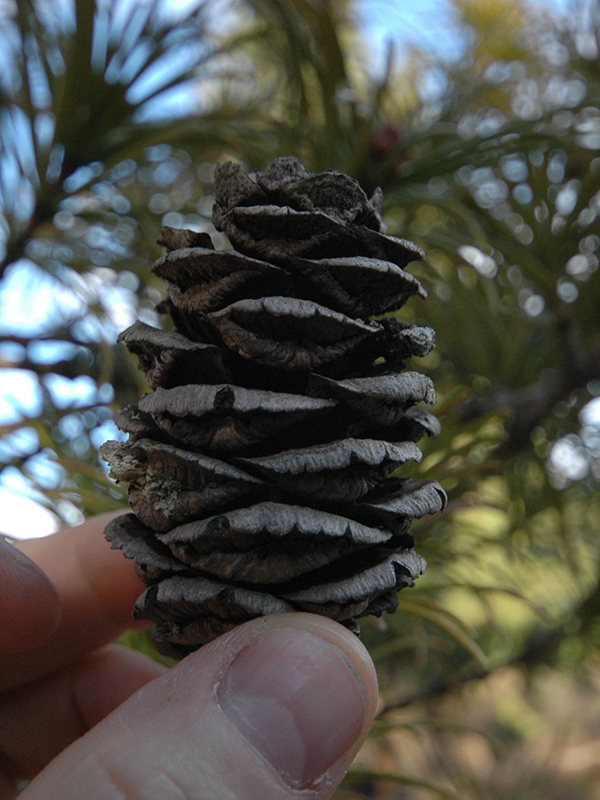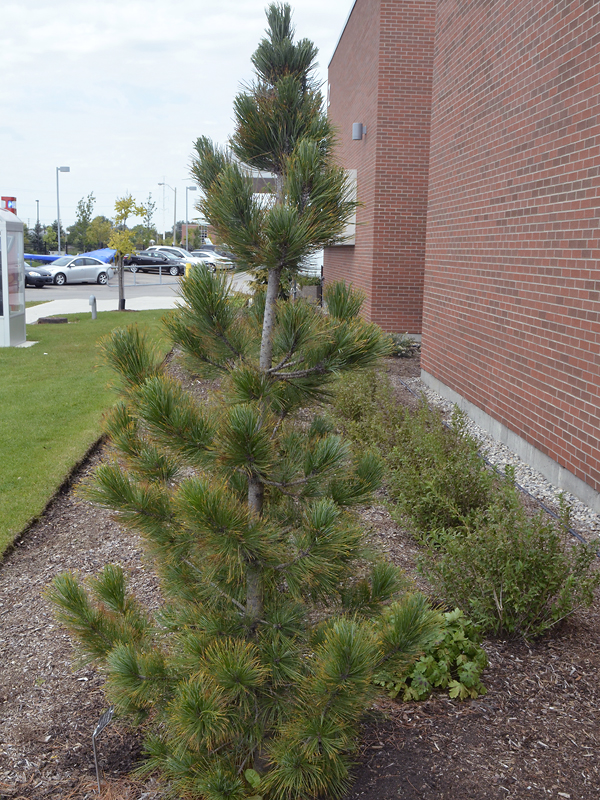
Woody > Pinus > Pinus cembra > Pinus cembra
Pinus cembra
Swiss Stone Pine
Origin: Europe and Southern Asia.
Mike's
Opinion


"
One of the nicest Pinus species we are able to grow in North America, a tough and hardy specimen. In Switzerland they are planted near houses and in gardens as symbols of good fortune.
Michael Pascoe, NDP., ODH., CLT., MSc. (Plant Conservation)
"
| Family |
| Pinaceae |
| Genus |
| Pinus |
| Species |
| cembra |
| Category |
| Woody |
| Type |
| Tree (evergreen) |
| Pronunciation |
| USDA Hardiness Zone |
| 4 - 7 |
| Canadian Hardiness Zone |
| 2a - 7a |
| RHS Hardiness Zone |
| H5 - H5 |
| Temperature (°C) |
| (-32) - (-12)C |
| Temperature (°F) |
| (-25) - 10 |
| Height |
| 9-12 m |
| Spread |
| 4-6 m |
Photographs
Description and Growing Information
Flowering Period
| General Description |
| A medium sized tree, with dark green needles in bundles of 5, very soft to the touch. A very rounded form when mature. |
| Landscape |
| Useful as a specimen, mass planting or as a screen because of its narrow form. |
| Cultivation |
| Requires well-drained, loamy soil in full sun. Should be located in an open area with free air movement. It can germinate and establish itself on mineral soils or even rocky surfaces. |
| Shape |
| Densely columnar, pyramidal in youth, becoming open and rounded when mature. |
| Growth |
| Slow |
| ID Characteristic |
| Unlike many other pines, the Swiss Stone Pine remains thick and dense right down to the ground through most of its life. Very soft, dark green needles and brown cones with a purple tinge. |
| Pests |
| Large larch bark beetle, larch budmoth, scleroderris canker, and brown felt blight. |
| Habitat |
| Higher mountain locations, up to 2,850 m above sea level in sandy or rocky soil. |
| Bark/Stem Description |
| Grey-green and smooth when young, becoming grey-brown, ridged, largely scaled and furrowed with maturity. |
| Flower/Leaf Bud Description |
| Foliar buds are grey-brown, ovate, acute, 6-13 mm long, and resinous. |
| Leaf Description |
| Five needles, remaining 4-5 years, rather stiff, straight and 5-7.6 cm long. Dark green outside, inner sides have bluish white stomatic lines. |
| Flower Description |
| Individual flowers are either male or female, the plant is monoecious, though not self-fertile. Swiss Stone Pine is a wind-pollinated species. |
| Fruit Description |
| Cones are terminal, erect-ovoid, and 5-7.6 cm long by 3.8-5.7 cm broad. Greenish violet at first, turning purplish brown when mature. Cones never open, but drop in the spring of the 3rd year, seeds are released by birds or decomposition. |
| Colour Description |
| Stems are covered with a dense, yellow-brown to orange-coloured pubescence the 1st year, becoming greyish brown to brownish black the second year. Dark green needles, and greyish-brown bark in maturity. |
| Texture Description |
| Fine to medium textured. Very thick, soft foliage that is retained all the way to the ground. |
| Notable Specimens |
| Central Experimental Farm, Ottawa, Ontario, Canada. The University of Western Ontario, London, Ontario, Canada. |
| Propagation |
| Seed should be stratified in a moist medium for 90-270 days at 0-5°C. |
| Ethnobotanical Uses (Disclaimer) |
| The seed which are easily extracted from the cone are highly nutritious and very tasty. |


